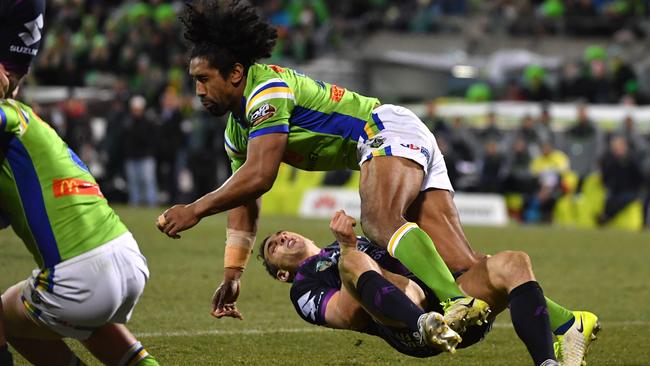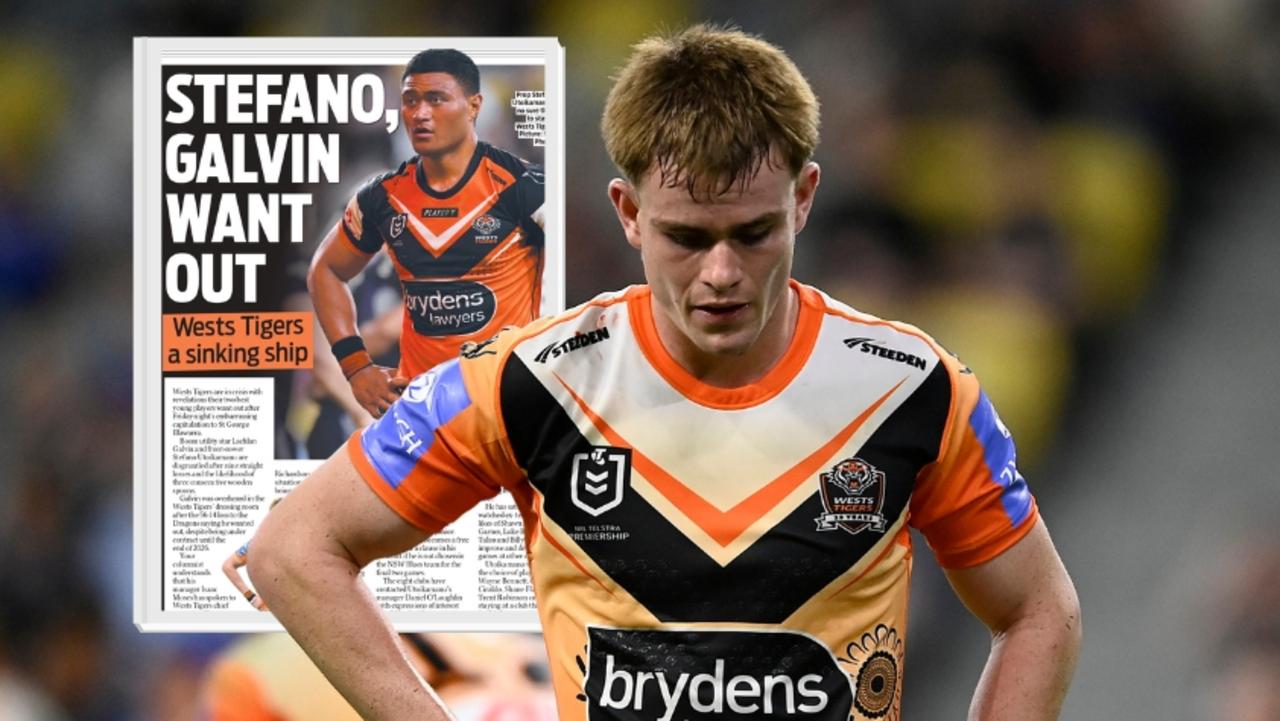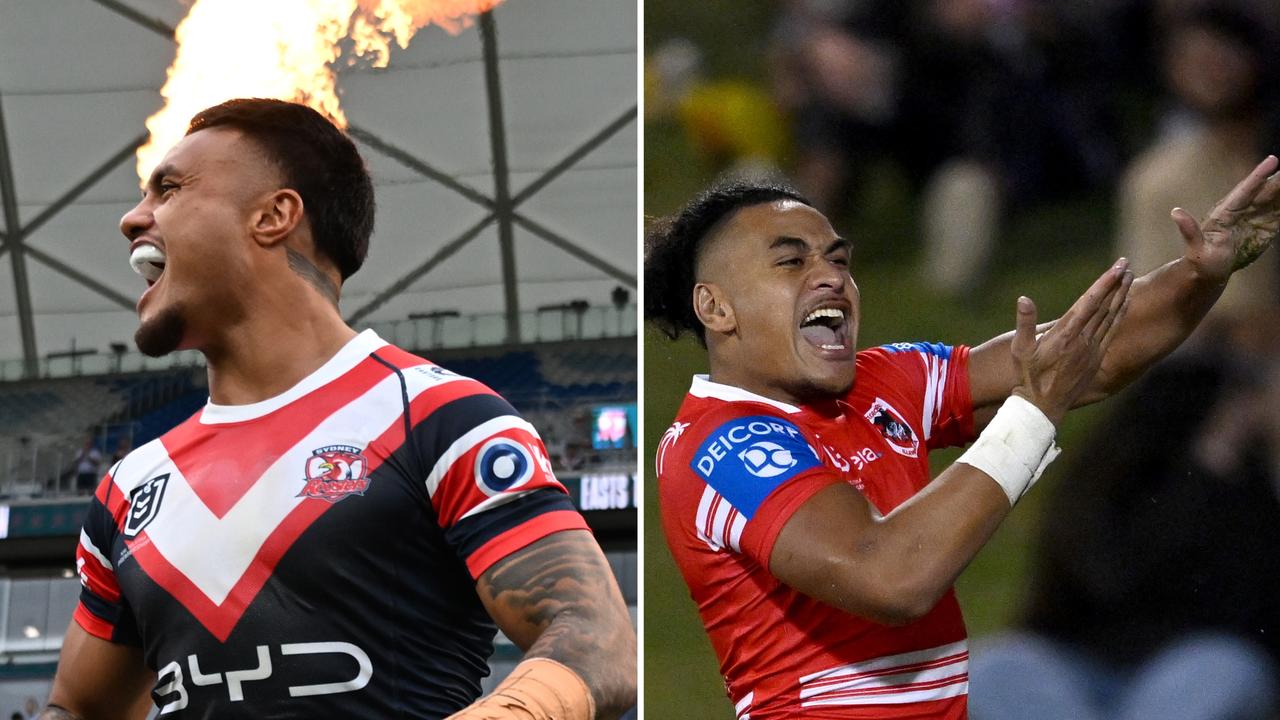Colman’s call: Football concussion in the spotlight again after Slater’s head knock
COLMAN’S CALL: There has been plenty of talk over the past few days about the late, high hit on Billy Slater, but the final chapter might not be written for years.

Opinion
Don't miss out on the headlines from Opinion. Followed categories will be added to My News.
- Concussion policy under spotlight
- Boyd poised to re-sign with Brisbane
- ‘I will go back to union one day’
THERE has been plenty of talk over the past few days about the late, high hit on Billy Slater, but the final chapter might not be written for years.
Anyone who has seen the film Concussion or read reports about former American football players and their long-running legal battle with the NFL would know that a head injury suffered on the field can have serious ramifications long after the player has retired.
The film shows in graphic detail the tragic results of chronic traumatic encephalopathy — or CTE — the brain disease associated with repeated blows to the head such as those suffered by footballers.

This week, a university study published in the Journal of the American Medical Association claimed that the brains of 99 per cent of former NFL players showed signs of the disease, which can lead to aggression and dementia.
CTE has been blamed for the deaths of former leading players Junior Seau and Dave Duerson, both of whom took their own lives.
After initially refusing to acknowledge any link between their game and the disease, the NFL has been forced into a costly backdown. The league has pledged to donate US$100 million for research into CTE and, in the largest legal settlement in sports history, may have to pay out as much as US$1 billion to former players who say they were lied to about the long-term dangers of concussion.

The settlement sent shockwaves around the sporting world, including Australia where the major football codes, after decades of archaic treatment of on-field head injuries, have now implemented strict regimes of immediate diagnosis and treatment, including mandatory recovery periods.
For some it is too little, too late.
Former Newcastle Knights winger James McManus, 31, last month became the first player to take legal action against his club over the handling of his alleged repeated concussions.
McManus, who played three Origin matches for NSW, is suing the Knights for damages for “permitting or requiring him to continue to be exposed to traumatic brain injury when they knew the cumulative effect could create a permanent impairment”.
In a statement of claim in the NSW Supreme Court, McManus said he now suffered “cognitive impairment, impairment of memory, mood swings, headaches, anxiety, depression, lethargy and sleep disturbance”.

Other former players, such as Kevin Hastings, Mario Fenech and Willie Carne have also gone public about the long-term effects head injuries suffered during their illustrious careers have had on their lives.
Hastings admitted he had come close to suicide due to depression he believes was caused by numerous concussions during his time with the Roosters between 1976 and 1987.
Fenech — who says he was knocked out “eight or nine times a season” in his 274-game career — and former Broncos winger Carne have spoken of memory loss.
Billy Slater, who will miss this weekend’s match against Manly, lost all memory of the previous two weeks after he was hit by the Canberra Raiders’ Sia Soliola.
The Knights, in their defence against the action by McManus, argued that rugby league was a “dangerous recreational activity … with an obvious risk” of harm of which McManus was presumed to have been aware.
Perhaps, but should former NRL, AFL or Australian rugby players be tempted to follow the lead of the NFL players and consider launching a class-action suit, they should be aware of another obvious risk.
The New York Times last week reported that even though the NFL claim process can be freely and simply handled online, former players are being inundated with approaches from hastily set-up companies offering to help them get a payout — for a percentage of the settlement amount of course.
In some cases the ex-players targeted are mentally impaired and the front-people making the approach are former players themselves.
It seems when there is money to be made in football, the sharks and raiders aren’t all on the field.
Originally published as Colman’s call: Football concussion in the spotlight again after Slater’s head knock


